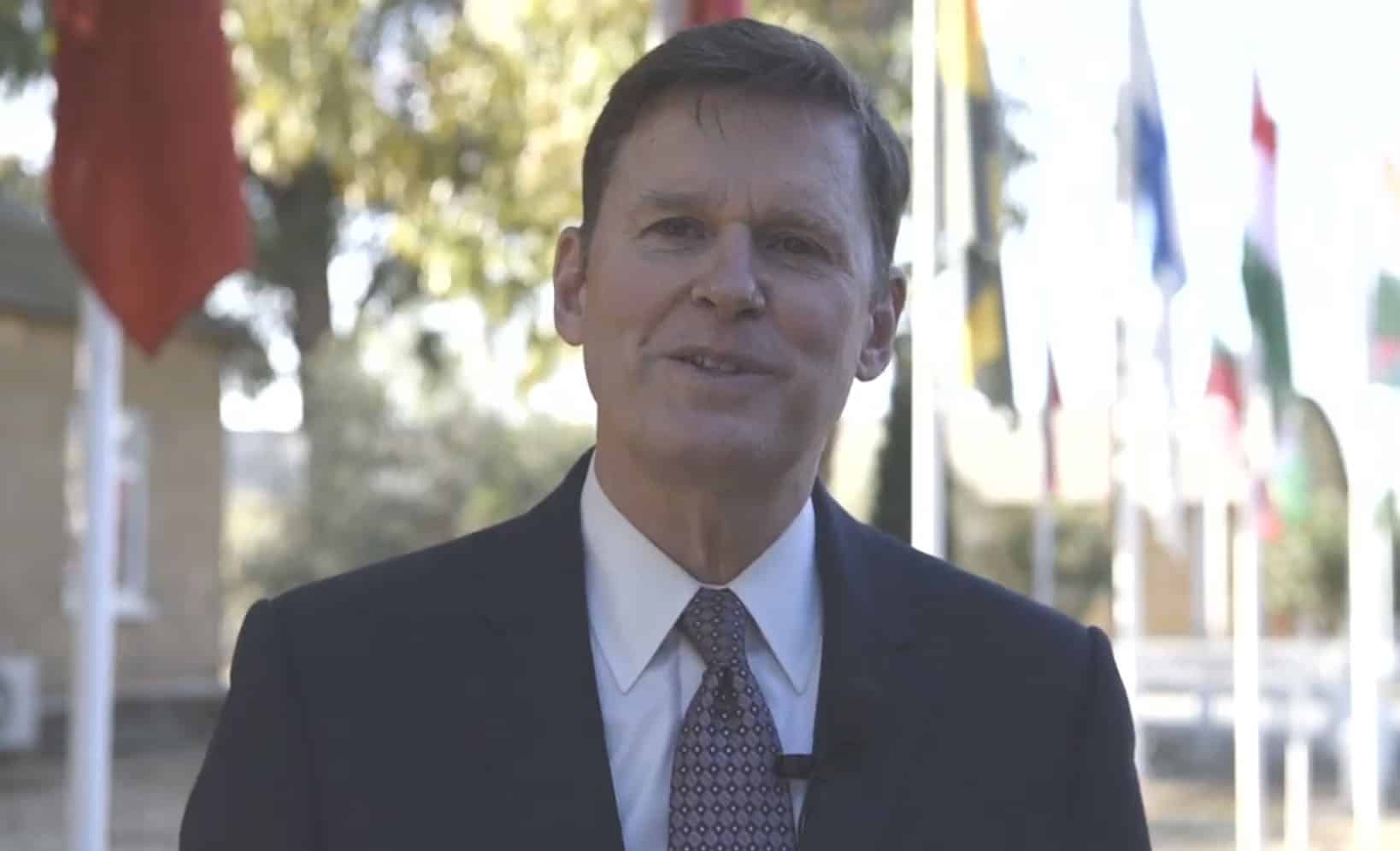Comments about the stance of the Greek Cypriot side, attributed to the UN Special Representative Colin Stewart during a meeting in New York, by Turkish Cypriot newspaper Yeni Duzen, did not go down well with the Cyprus government. President Anastasiades personally expressed his dissatisfaction and demanded that Stewart denied or confirmed whether he had made the comments attributed to him.
He was obviously unhappy with Unficyp’s attempt to play down the matter, and the Unficyp spokesman Aleem Siddique’s failure to offer a denial. On Thursday Siddique had dealt with the matter with a tweet, which he repeated to Cyprus News Agency. “We work closely with both sides impartially. We reject all allegations of bias. They are wrong and unfounded.” This was not a denial of the comments attributed to Stewart, but a denial of claims of bias against the UN.
Foreign ministry spokesman Demetris Demetriou tweeted that as the Yeni Duzen story “attributed to Mr Stewart unprecedented and very serious references against our side, we would have expected him to reject the publication as unfounded and wrong.” He added that “general and vague posts for such a serious matter are not enough.” President Anastasiades was more direct on Thursday, saying that “Mr Stewart has been challenged to set the record straight.” If he actually said these things, “the least one can say is that we are not talking a about a representative of the UN, but a representative of those who violate international law.”
These were very harsh words indeed, even though no Cypriot politician has ever lost support by attacking a UN official, or any foreign official for that matter. Accusing UN officials of pro-Turkish bias is routine for Greek Cypriot politicians and journalists who have been doing this for five decades. American, British and European officials in involved in efforts to help the peace process have also been subject to this accusation, the latest example being the UN Secretary-General’s Special Envoy Espen Barth Eide who was repeatedly targeted by Anastasiades and unfairly charged with promoting the Turkish side’s interest.
On Friday, the matter was laid to rest, after a meeting between Stewart and the permanent secretary of the foreign ministry Kornelios Korneliou. A statement issued by the foreign ministry after the meeting, said, Stewart “categorically rejected the references attributed to his person, noting that they do not correspond to reality.”
What had Stewart allegedly said that was unprecedented and very serious? During a briefing in New York, arranged by Finland’s representation at the UN and attended by representatives of Scandinavian countries, Stewart had reportedly said: “The northern part of Cyprus has now been integrated economically and politically with Turkey. The Greek Cypriot side is the one that needs to act to change the situation. However, all they do is complain, condemn and accuse.”
Even if he had not said exactly this, the supposedly made-up comment was quite an astute observation about the situation. We suspect Anastasiades took offence because the observation, which was not made, was too close to the truth and brought attention to his failure to do anything meaningful stop the north’s integration with Turkey. What part of this view could be described as wrong or unfounded? The northern part has been integrated with Turkey and the Cyprus government, despite being aware of what has been happening for the last few years, has done nothing practical to stop this. It has taken no initiative, nor come up with new ideas other than to propose confidence-building measures it knew the Turkish Cypriot side would reject.
President Anastasiades, at every opportunity, has been talking about Turkey’s intransigence, revisionism, hostility and violation of international law, as if this would change anything. This rhetoric might work domestically and help the president’s oft-repeated assertion that he is blameless for the Cyprus problem reaching the worst point in its history, but this achieves nothing. Since 1974 we have been condemning, complaining and accusing the UN, the EU, the UK, the US for having double standards, siding with Turkey and not ending the occupation. As everyone can see, this approach has got us nowhere but 50 years on we persist with it, pretending it will have a different outcome, fully aware that it will not.
Taking the moral high ground, allows the politicians to ignore the stark reality staring at us. President Erdogan has put the north on a course that will end with its annexation by Turkey. He is on course to achieving his objective and the Cyprus government is doing nothing but voicing platitudes. The only way to stop him – it may be too late now – is by being proactive, by finding a way of persuading the Turkish side to engage in a peace process again. This would require a flexible approach, creative and original thinking, a show of good faith and perhaps the offer of some concessions to get thing moving again.
It might not work, but there is a small possibility it would, in contrast to the traditional blame game, we have always engaged in, with zero success. By doing nothing except talking, we are helping Erdogan achieve his objective. This is a statement of the obvious, which nobody can dispute, even if it did not come from Colin Stewart’s mouth.







Click here to change your cookie preferences